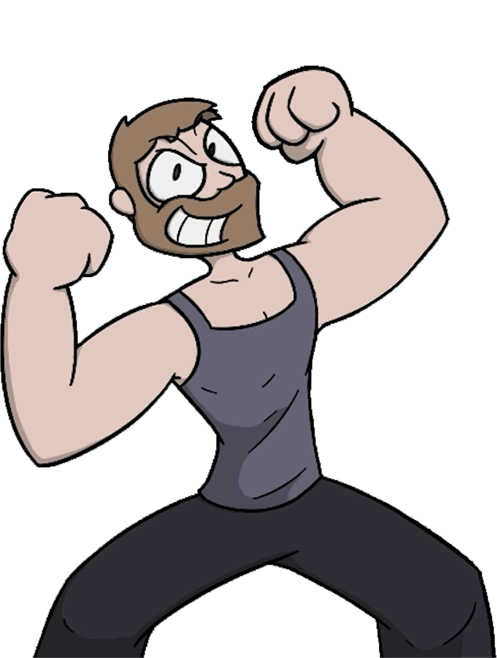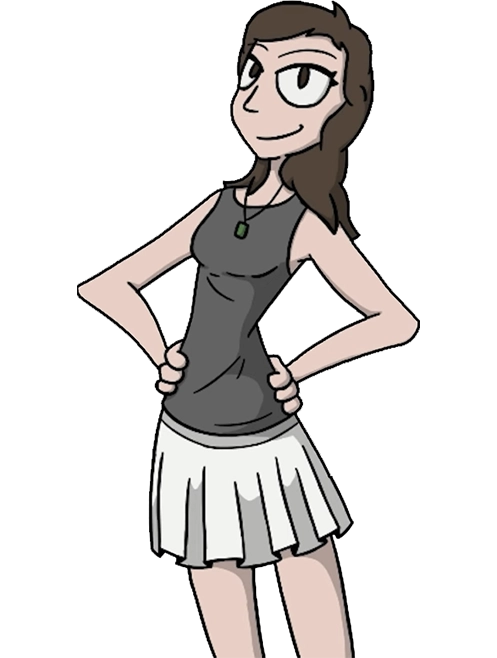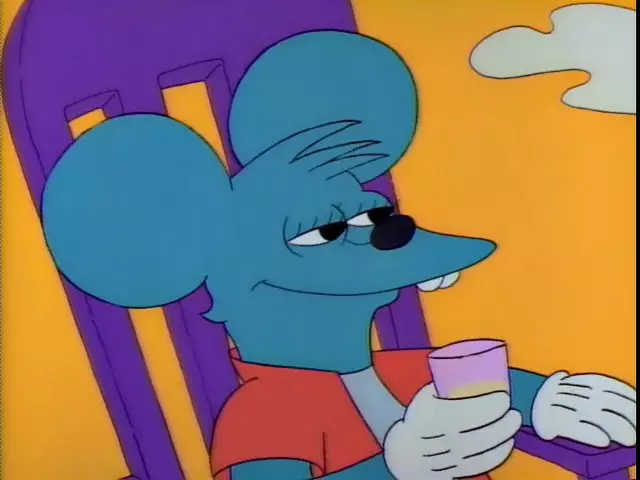My Recollection
Maggie bashing Homer in the head. Marge episode. The frightening wide-eyed stare of “nice” Itchy and Scratchy.
My neighbour in Goodna was a kid called Steven. His father was a stunted wookie with an 80 IQ called Devlin and his mother was a garbage bag full of cottage cheese. He was so skinny he could fit behind the gas bottles behind the house and the one time I used the toilet there the paper was a school exercise book. The only time he got a good Christmas present, a working 50cc peewee motorbike, his dad insisted on using it first and his huge ass blew out both tires while Steven watched. His relationship with his father was tense.
Feral families don’t have pets so much as they just cohabitate with animals. I’ve seen two kids sharing a room because one of the rooms was the dog’s and the fact that I was never sure whether that arrangement was the dog’s idea or not pretty much answered the question. Sometimes they are fun animals, like a friendly dog with its own room who only occasionally tries to rape you. Sometimes they are insanely dangerous things hemmed in by 7 foot high chicken wire that turn the back yard and rear door into absolute no-go areas. Sometimes they’re a savage duck that only likes Devlin.
Most animals are just kind of there. They react to things and that’s about it. Any negative experience you have with them — being bitten, chased, or what have you — are side-effects of natural systems that aren’t really about you at all. Then there’s birds. Birds are smart and can fly. This means they aren’t besieged with the kind of minute-to-minute mortal terror that occupies the mind of something like a mouse. They can sit up on a pole, far from any threat, and get fucking bored. Birds are one of the few animals that will look at something that is neither food, foe, or mate, and decide to interfere in its existence purely for the chuckles. This has always given their misbehaviour the tangy aftertaste of thoughtful malice you just don’t get with anything else.
I don’t remember the duck ever being a duckling and with that goes the only explanation I could ever have for why a duck liked Devlin. Nothing liked Devlin. Trees instinctively fell on him. I spite of this reality, he and the duck got along. I subscribe to the theory Steven advanced, that Devlin and the duck were exactly the same type of asshole, because Steven’s relationship with the duck was tense. I’ve had relatives who had birds as pets and it’s left me with a negative to confused view of the idea. In retrospect, having a corner of a room you can no longer access because a sulphur crested cockatoo will go berserk is strange. Can I pet it? No, it will screech and bite you. Can I feed it? No, it will screech, bite you, and eat the food once you’ve run away screaming. Does it fill the house with pleasant music? No, it sounds like Gilbert Gottfried stabbing another Gilbert Gottfried. Even with this as my baseline understanding of bird pets, the duck was a bad pet.
Stealth sections aren’t a fun addition to most games and they’re even less fun when a psychotic bird imposes one on your house. I found this out by taking a normal step for a small male child of about 11 and being told that it was too loud. Too loud for what? It turns out there’s nothing in the human fear instinct pile that corresponds to hateful quacking so I stood there wondering what the fuck that sound was until it had chased me out of the house. Don’t step too loudly. Don’t make eye contact with it. Don’t speak above a whisper. These were the rules a child had to live by because of a duck. Steven had a tense relationship with his father. Steven had a tense relationship with the duck. This was one tension too many.
A critical state is, broadly, a point at which a system can change. Think of sand in an hourglass and the way it doesn’t just pile up forever. Critical states are the whole circumstance before collapse, not the individual cause, because sometimes, particularly in large or baflfingly complicated systems, the catalyst is an impossible variable to know. It might be the very first grain has been on an odd angle this whole time. It might be a particularly fat grain about to tumbled down on top of the pile. I cannot remember what started the fight because it ultimately doesn’t matter. Steven, Devlin, and the duck were a critical state. Then there was a collapse.
A broken human is an amazingly capable thing because when you’ve nothing left to fear you suddenly find yourself without any limits.
When Steven broke, he did the last thing I expected him to do and picked up the duck. Among the list of things the duck didn’t like — Steven, being touched by Steven, and being picked up by Steven — it was most certainly not prepared for all three to happen at once. It went into an apoplectic fit of beaks and feathers. At the sight of this, Devlin entered a similar state but struggled to get out of the semi-collapsed yard couch he was aggressively gesticulating from.
To throw something is to toss it with the intent of being caught. To peg something is to throw a thing with the intent of it fucking caning whatever you’ve pegged the thing at. Steven pegged a furious duck into his hollering father’s face and the following explosion of feathers, toothless hillbilly, and mindless rage was something to behold.
Animals react to things like being pegged at a face and having something pegged at their face with a near equal level of directionless hostility so it wasn’t too surprising that what started as a fight between Steven and Devlin became a kind of brawl between Devlin’s face and the duck. The duck didn’t fucking care what it was doing, like a slightly vexed Donald, it was just thrashing whatever was nearest. Devlin seemed to want a peaceful resolution to this but couldn’t decide whether he wanted his arms to wobble him up to a standing position or deal with the bitey ducknado assaulting him so neither happened. Devlin’s face was furious at both these problems but could do nothing but endure an horrendous pinching until the duck tired and waddled back to its corner of the yard.
The cottage cheese, disturbed from playing Centipede on an Atari, wandered into the back yard and began a quick assessment of which party she could give away with the least effort. Steven didn’t have to stealth level around his own home anymore and I eventually got to watch Devlin get regularly bitten by his own dog.
The Episode.
There’s a moment in the commentary track for Itchy and Scratchy and Marge where they argue the episode isn’t trying to make a point. This is a variant of the Idiot Defence. Letterman used the Idiot Defence a lot. He’d argue some point, sometimes quite articulately, but because he has to speak to a broad audience that would contain the exact morons he had contempt for, he’d finish his piece by grumbling that he was an idiot and struggled with these ideas. It’s called the Idiot Defence because only an idiot could fall for it. This episode’s makers don’t want you to think they have a point, lest they upset any idiots, but they do and its existence creates a very strong episode.
There’s a tension between comedy and narrative. For a comedy to work, it needs to make you laugh so this prioritises jokes over everything else and is what generally separates it from a drama that’s funny. Shows like The Simpsons (and other animated sitcoms), 30 Rock, and Community will often run multiple plot threads, ones that typically shorten and weaken other dramatic elements, as they need the surface area for more jokes. This is why you see a lot of multi-thread storytelling, something that makes sense in hour long programs, jammed into 22 minute comedies. It mostly works because the comic characters tend to be more archetypal and require less fleshing out to feel appropriate for their worlds, but the current era, and its easy to binge/catch up distribution methods, has spoiled us with serialisation to make up for the shortfall. The Simpsons has always played loose with its serialised elements. They’re definitely there, think of the character growth and life changes for Apu, but it is often hard to tell which bit of what episode is going to be blessed with absorption into the canon. Its unreliable nature, and relative scarcity besides, means the show typically relies on the multi-thread approach as enough good jokes easily drown out the bad ones.
It’s easy to look at a broken lamp surrounded by rotting foodstuffs and forget that it’s also garbage. It’s similarly easy to look at Marge as the suffering angel surrounded by pigs. The glimpses we get of her in most other episodes lean into the archetypal and non-serialised, housewife generally and cop episode for example, and these tend to obfuscate her more than develop her. So we’re left with a woman in the shadow of Homer, a chaotic monstrosity, in which she will only ever look a saint. What flaws that get their own episodes, gambling addiction for instance, are always treated as problems Marge is a victim of. Even the obvious part of the not-message this episode has, the hypocrisy of some crusading nitwit demanding an end to only the art she doesn’t like, is depicted as only the overzealous result of a core positive trait. She is seldom overtly treated as bad so you can only catch glimpses of real faults in the corners of focused episodes. We get to see a lot of Marge here, it’s her story and her quest, and its because of that focus we get to see more.
It doesn't depict Marge as a good mother. Loving to the point of anxiety, sure, but fretting and parenting are different things. Marge dumps her child in front of the TV and this child immediately imitates what she sees as though there’s no other competition in its developing mind for behavioural role-models. What does Marge do all day that this is Maggie’s reaction to violent imagery? Lisa doesn’t do this sort of thing at all. Even Bart, gob of novelty malice as he’s frequently depicted, doesn’t just bash Homer over the head. Marge spends all her time with Maggie and yet it’s like she’s not there at all.
Marge is present in her children’s lives as a being but not as a parent. She cares a lot, but it is a care mutated by domestic stagnation and garden variety ignorance. She is bored by her children, so rather than spend time with her youngest, she reaches out for the broader recognition she craves and becomes an activist, guaranteeing her less time with her child. We never see her address this problem in her own child at all. The most she interacts with Maggie after this is to say, “Bad baby” before abandoning her to campaign against Itchy and Scratchy. This is like starting a letter writing campaign to change leash laws while the dog is still mauling your child.
And all of this is excellent.
Archetypes are easy but will inevitably skew dull, particularly when they are the actual Nuclear Family. The other characters developed softening and hardening traits that gave cookie-cutter beings depth. Marge has always been a tough one to do this to as narrative balance requires a straight-man and the resulting victim status makes polluting her with genuine awfulness dangerously close to punishing viewer sympathy. There are other instances (I don’t count her getting drunk in season one as being on-character though so I exclude it) of this throughout the good years and I’ll bring them up as we go. They’re often, and by comparison, surprisingly brief but they add depth to a woman whose character is often little more than an archetype draped in baubles. This episode’s focus gives her the time and narrative developments to be whole and it’s a pleasant change. Remember, a bad character isn’t the same as bad characterisation.
Beyond a better look at Marge, the episode’s singular focus makes it a structural feat, albeit one aided by the setting. Crafting a structurally cohesive ensemble comedy, or anything really, is tricky when you’ve broad character variety. Coming up with reasons for all the characters to be together or a story that naturally involves all of them can be hard and many shows struggle with this. Archer particularly resorts to lazy contrivances it then obnoxiously plays of with self-awareness. The core narrative of this episode is a godsend for being naturally imbued with things for everyone to be doing and the story fills these gaps well. The result, like a lot of focused Simpsons episodes, is a story where even the absurd detours feel necessary to the story. The musical interlude where the children return to the idyllic hobbies and manners of a never real yesteryear is silly, but it’s a silliness that narrative impetus casts as a brief detour from the norm with the promise of a return to normality functioning as a stabilising agent.
It would be easy for Itchy and Scratchy and Marge to be a real drag of an episode. Its core plot point is identical to last week’s Bart the Daredevil, it’s a Marge episode, and it’s about something as fundamentally stupid as a crusading ninny whining about cartoon violence. I said at the start that the directors commentary tried to fob off any point and I called them liars but the episode does provide them some cover. There is a point, but each character’s individual ones are treated as it while they’re on screen. This focus of theme, plot, and character lets side characters operate in ways that are minor but still meaningful, resulting in an episode that stands out as one of season two’s betters.
Yours in going to Janey’s to watch cartoons, Gabriel.
Jokes, lines, and stray thoughts
Marge is actually a good cook here, with a wide variety of spices and MSG. This is pretty much ditched for a later characterisation of her being a boring cook who doesn’t even know what oregano is.
The whole scene of Homer being bashed is a quite accurate parody of Psycho made easier by it arriving on VHS around when this was written. Homer’s tongue waggling scream and the brief but focal shot of him being bashed in the head are great visual gags.


Things like the multi-threading for more joke potential aren’t hard rules, but they are rules. Reducing the number of active points in your work puts more weight on the ones that are there. If that focal story you have winds up weak, then that’s going to basically collapse your whole thing. It’s not impossible, just much harder and often not worth the risk. Later series, like the aforementioned 30 Rock and Community, use serialisation and the ability to target more sophisticated audiences to craft densely layered narratives and meta-narratives which gives them access to the best of both worlds.
The joke of Marge being in an Itchy and Scratchy episode about cartoon violence while herself in a cartoon about cartoon violence is a level of meta made fun by its depth and, for its time, freshness. Homer laughing his ass off at the obvious parallel, to Marge’s frustration, is a great example of a joke that works to use and build character as opposed from taking away from it. Many shows use absurd reality levels of similarly ridiculous premises, South Park and American Dad come to mind, to do both but getting it to work within a dryer, realer setting is real skill.
“Dogs Tricked” on Marge’s list of violent events is amusingly incongruous and I’m a sucker for a basic list gag.
Roger Meyer’s reply is great and I wish more creators would reply to loud morons in similar fashion.
“There’s peas everywhere”
One of the last appearances by Marvin Monroe. He was making fun of the early wave of bullshit TV psychiatrists, pre Dr Phil, and his list of topics, “women who love to much, fear of winning, and sex-aholism” were the clickbait of checkout aisle rags.
Krusty’s character in these early seasons was refined but quite different from the one that ended up taking over. His naivety and illiteracy were dumped for the more fertile ground of bitter comedy legend that a bunch of comedy nerds would know intimately.
The banality of the Marge-approved Itchy and Scratchy is an exaggerated but not by much prod at the awful “positive” children’s programming you’d see around and still sometimes do. Nickelodeon’s 1991 run of madness, while not the first or only, fucking set a tone for children’s animation actually being deep and interesting. Prior to that it was almost universally awful. Go watch an actual episode of He-Man, it’s on Netflix, I dare you to sit through a whole episode. Now imagine everything was that.
The great fiction of this episode is a moral crusader relenting after being confronted with a basic hypocrisy.
There’s a moment when Marge is dragged back on Smartline to discuss the statue of David and the animators gave her angry eyes by mistake. She’s not mad, she’s smiling and her tone of voice isn’t negative, and it fixes itself after a few seconds but dammit it’s a funny shot.

Maggie is seen here getting the idea of how to shoot from an episode of I&S which I’m taking as a long term setup for her eventually gunning Mr Burns down.





8 replies to Itchy and Scratchy and Marge
coffeewaffee on 19th July 201819 Jul 18 said:
It might just be my dismal and grey English upbringing, but I've had a look at Goodna on Google Street View and it looks quite nice.
Gabriel on 23rd July 201823 Jul 18 said:
A lot has changed. The big church complex at the end of my old street used to be a weird Vietnamese farm, for instance. Development rolls through and shoves the oddities further out. Aside from all that, the area itself is pleasant.
Tobias on 25th July 201825 Jul 18 said:
I drove through Goodna this morning and it looks every bit the shitty dump I remember, not that I actually lived there.
Alex on 15th July 201815 Jul 18 said:
The theme of this episode hits particularly close to home for me because for an extended period of my primary school experience my mum wouldn't let me watch The Simpsons (and later, even fucking Rugrats) because she thought Bart was being a bad influence on me. I think I was just born a cunt that didn't take to the school system until my early 20s.
SAUglaz on 15th July 201815 Jul 18 said:
I remember watching Family Guy as a kid not because i liked it, but because my mother said that it was retarded and i shouldn't watch it. And only now i understand that she was right, and i missed out on so much sleep staying up late just to watch some mediocre jokes, half of which went over my head due to cultural distance, but i was a stubborn little shit. Good thing she didn't try that tactic with alcohol and tobacco and just let me try those things and learn that they are bad the hard way.
Gabriel on 16th July 201816 Jul 18 said:
Hahaha, not even Rugrats? That was made for actual children.
Anon on 16th July 201816 Jul 18 said:
The stories that precede the reviews are fuckin' gold. Genuinely hope you make it trough the whole series too, 'cuz fuck is there a lot to talk about that I didn't know was there.
Gabriel on 16th July 201816 Jul 18 said:
I'll run out of stories eventually
Comment on Itchy and Scratchy and Marge
To reply, please Log in